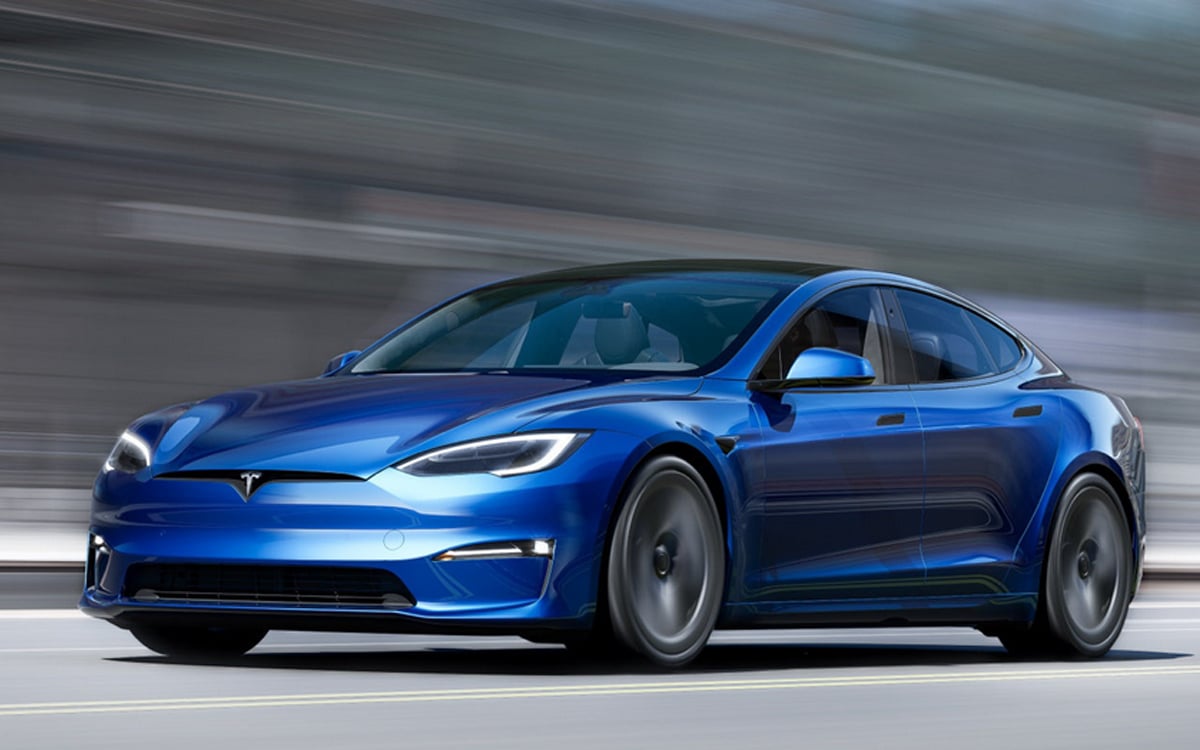
Our Next Energy (ONE) company has developed a battery capable of exploding the Tesla Model S range record. While the car can initially drive 650 km, this battery doubles that figure by driving it up. at 1210 km. The company did not specify the production process, but intends to offer other prototypes during the year.
The Tesla Model S is not particularly recognized for his autonomy. Indeed, thanks to the Plaid version, it shines above all thanks to its speed records that it sets regularly. We also remember the disappointment caused by the Large Autonomy version, which ultimately does not offer any real added value in this area. In other words, there is still room for improvement at this level, and battery manufacturers do not hesitate to offer their innovations.
This is particularly the case of Our Next Energy (ONE), an American company which has just claimed a new record of autonomy on the Tesla Model S. And the least we can say is that it does not did not do things by halves. Thanks to its new battery, the range of the car has almost doubled, thus reaching 1210 km. A performance obtained by driving at a fixed speed of about 90 km.
Company breaks all Tesla Model S range records
“Our Next Energy inc. (ONE), a Michigan company specializing in battery technology, demonstrated a battery that allowed an electric vehicle to travel 1,210 km without being recharged ”, the firm said. “The vehicle took a test drive through Michigan in late December at an average speed of 90 km / h.” It makes you wonder what is put into this battery to achieve this awesome performance. Sadly, ONE remains very mysterious on this subject.
On the same topic: The Tesla Model S Plaid blows up the Cadillac CT5-V Blackwing and the BMW M5 CS on the racetrack
“The battery system has an energy density of 416 Wh / L (compared to around 245 Wh / L for the original pack) and uses a nickel-cobalt-manganese cathode and a graphite anode”, contented himself with explaining the manufacturer. “The pack added 331 kg in total to the initial mass of the battery (and vehicle) while adding 99.8 kWh of energy. The specific energy density of the pack we tested was 231 Wh / kg“.
We will therefore have to wait a little longer before knowing more about the technology at work. Indeed, the company plans to present other prototypes by the end of the year. In the meantime, the latter has published a video reviewing the project.
Source: electrek



